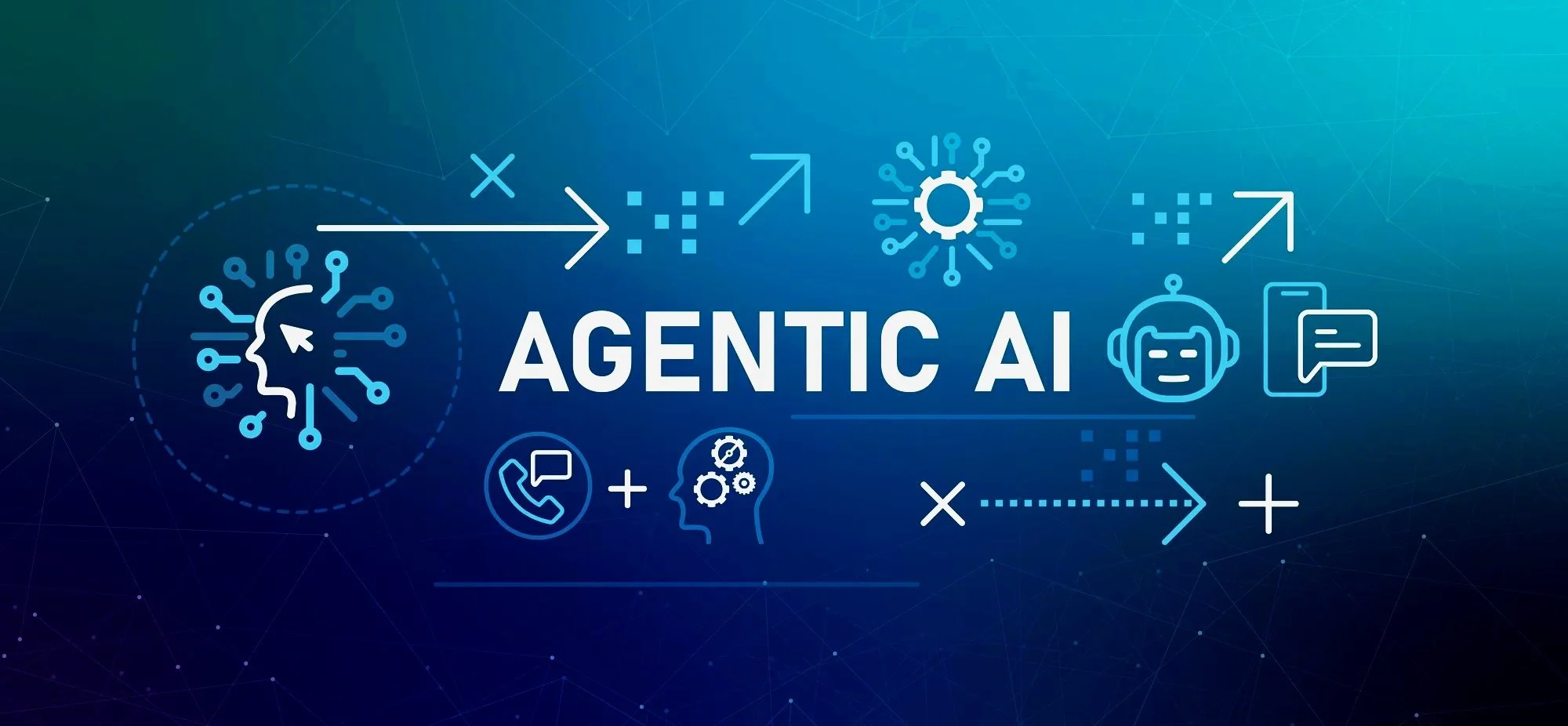People outside regulated industries often assume the hardest part of the job is making the right decision. In practice, the harder part is explaining that decision later to someone who was not there, does not know the context, and is paid to be skeptical.
Read MoreOver the past two years, enterprises have rapidly adopted AI copilots, chatbots, and assistants across support, IT, and customer-facing workflows. Early results have been promising. Teams report faster answers, reduced manual effort, and incremental productivity gains.
Read MoreThis is the season of holiday overeating and over-drinking—despite the fact that moderate consumption of food and alcohol is widely believed to lead to a better life. Although I sometimes agree with Oscar Wilde in advocating “moderation in all things—including moderation,” I am beginning to think that AI—particularly the generative variety—is no different than food, alcohol, or other good things that become problematic when used excessively.
Read MoreThe technology that dazzled in a controlled environment struggles to deliver consistent value when deployed across the enterprise. This is not a technology problem. It is an architecture problem. And until executives recognize the difference, organizations will continue investing millions in AI capabilities that never achieve meaningful scale.
Read MoreThe most extreme version of strategic AI is found in a small but growing number of companies might be described as “all in on AI” or “AI first.” These companies are aggressively pursuing strategic returns on their AI investments. They are using the technology to enable new strategies, new business models, and dramatically new ways of performing their business processes. While they represent a low percentage of companies, they are providing trailblazing examples for the majority of companies that are more conservative.
Read MoreOver the past eighteen months, corporate language shifted from curiosity about AI to impatience with results. Adoption is widespread. Enterprise impact is not.
McKinsey’s State of AI 2025 found that about 88% of companies now use AI in at least one function and 62% are experimenting with AI agents. Only around 23% report scaling an agentic system somewhere, with single-function scaling rarely breaking into double digits. Only 39% report enterprise-level EBIT lift.
Read MoreBusinesses today face a broader range of risks than ever before. Ongoing geopolitical crises, such as the Russia-Ukraine conflict, along with the adoption of advanced technologies like AI, have created numerous new challenges for companies seeking to operate securely and effectively.
Read MoreHealthcare’s inefficiencies are not moral failures; they’re architectural ones.
Nearly $400 billion in annual administrative waste³.
43 percent of patients waiting more than two weeks for claims settlement³.
55 percent growth in Medicare Advantage denials in a single year³.
These numbers don’t reflect bad intentions—they reflect systems designed for file exchange, not reasoning.
Read MoreI am most concerned about this issue in healthcare—perhaps obviously, because de-skilled clinicians could endanger human health. The other general reason why healthcare professionals might let AI de-skill themselves is that they are under considerable pressure to be more productive—at least in the U.S. The average patient visit with a physician is only about 15 minutes, and there are temptations galore to take AI-enabled shortcuts. If AI can easily summarize patient visits in clinical notes, diagnose diseases and communicate with patients about them, and help navigate highly bureaucratic insurance processes, why shouldn’t doctors and nurses take advantage of this capability?
Read MoreHaving been a tech bubble collector for more than 25 years, I noticed that by 2023, the signs of a bubble were already hidden in plain sight. Fast forward to October 2025. Fueled by VC exuberance (FOMO), a stock market frenzy, exaggerated user expectations, copyright infringements, the explosion of vibe coding, and AI startups competing for world domination, the bubble will soon burst (or at least deflate).
Read MoreYes, there is an AI bubble. AI-related stock prices are inflated, valuations of startups are inflated, there is too much marketing hype, data center construction is excessive, etc. All of these related bubblets will deflate, and probably soon.
Read MoreMIT professor emeritus Rodney Brooks has been posting an annual Predictions Scorecard in rodneybrooks.com since January 1, 2018, where he predicts future milestones in three technology areas: AI and robotics, self driving cars, and human space travel. He also reviews the actual progress in each of these areas to see how his past predictions have held up. On January 1 he posted his 2025 Predictions Scorecard.
Read MoreNew research reveals a widening gap between hype and real enterprise value. A recent article reviews MIT’s The GenAI Divide: State of AI in Business 2025, revealing that 95% of generative-AI pilot programs fail to deliver meaningful business outcomes, such as revenue growth or productivity improvements.
Read MoreAI is transforming public procurement by enhancing efficiency, reducing costs, and increasing transparency. Tangible examples from across the world demonstrate AI's potential to revolutionize procurement processes. As governments continue to adopt AI solutions, it is imperative to address associated challenges and ensure ethical, transparent and effective use of these technologies to maximize public value.
Read MoreHere are some practical data-quality audits every organization undergoing digital transformation should run in 2025. The future of AI-driven operations won’t be built on algorithms alone. It’ll be built on the integrity of the data that those algorithms depend on. And that makes data quality the most strategic step in any AI initiative, whether you're a public agency or a private enterprise.
Read MoreIn mid-2025, we are entering the early stages of a new age of digital transformation where networked technologies that combine engineering, computer algorithms, and culture are becoming impactful on a global scale. The upcoming digital revolution and technological convergence will drastically affect our patterns of living, working, and networking in the near future.
Read MoreSince OpenAI announced ChatGPTin November of 2022, many business executives have focused their attention on generative AI,” wrote Babson College professorTom Davenport, and technology and business strategist Peter Highin “How Gen AI and Analytical AI Differ — and When to Use Each,” an article published in the Harvard Business Review (HBR) issue of December, 2024. “This relatively new technology set off a frenzy around AI and caused companies to pay attention to it for the first time. This is a positive development, since the technology is powerful and important, and enables many new business possibilities
Read MoreAbout three years ago I started following and writing about Generative AI (GenAI), Large Language Models (LLMs), chatbots, and related topics. Then a few months ago I started hearing about agentic AI, and since then I’ve been trying to better understand what agentic AI is all about.
Read MoreAs artificial intelligence (AI) systems rapidly proliferate—powering decisions in healthcare, finance, employment, and public safety—the call for regulatory oversight has intensified. Yet a stubborn myth persists: that regulation and innovation are fundamentally at odds. Many technologists and policymakers argue that oversight stifles creativity and hinders emerging ventures. This article challenges that assumption. In fact, well-designed regulation doesn’t just protect society—it facilitates sustainable innovation. By creating clarity, trust, and a fair playing field, regulation can become a foundational driver of progress in the AI era.
Read MoreFor hospital administrators and personnel, this latest wave of AI deployments can be an exciting windfall. At hospitals across the country, AI agents designed to improve clinical documentation are quickly and effectively digesting mounds of paperwork. They are spotting inefficiencies—saving unnecessary costs for hospitals and freeing up clinicians to focus on what matters most—clinical judgment, care coordination, and high-complexity decision-making.
Read More




















